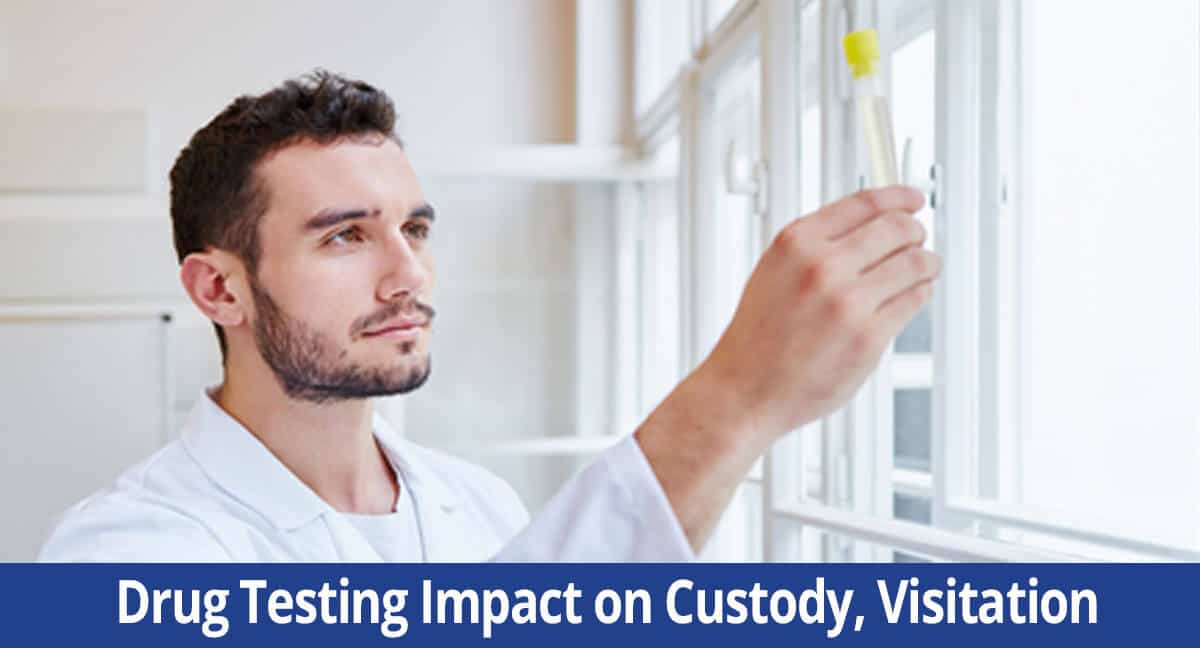Drug Testing Impact on Custody, Visitation in Long Island Family Court

If you’re involved in a divorce, child custody, or child support case, drug testing may be involved either for yourself or your ex, or both. Here’s what you need to know about why Long Island courts order drug tests, how they’re conducted, and when you should reach out for help from an experienced family law attorney.
Why Drug Tests Are Used in Family Court
Contrary to popular belief, drug use isn’t something penalized by family courts, even when illegal. A family court will not issue criminal charges but may forward the case to a prosecutor if deemed necessary, usually in clear instances where more than personal use is suspected. Rather, the primary consideration behind drug testing is ensuring the wellbeing and best interests of any children involved. If drug use is highly suspected, family courts will order testing to confirm and take appropriate action to reduce harm to the child, including but not limited to suspending child custody and visitation rights until a drug rehabilitation program has been completed successfully.
When Drug Testing is Ordered
More often than not, drug testing is ordered when one party files a motion. Both you and your ex each have the right to request testing, but it’s important to note that when this occurs, courts will generally order mutual testing. Family courts don’t drug test automatically, and there typically needs to be substantial evidence that drug abuse is an issue for a Long Island judge to order it.
How Drug Tests Are Conducted
There are three ways Long Island family courts test for drugs. Depending on the circumstances of your case, they may order a:
- Urine sample. This is the most commonly used type of drug test in Long Island courts since it’s generally the least expensive and intrusive. Urinalysis detects illegal substances at different times depending on the substance in question. For example, marijuana can be detected in urine one to two months after stopping heavy use. Methamphetamine, however, can only be detected three days after the last use.
- Blood test. While more invasive than other types of testing, blood tests are extremely accurate. Judges may order a blood test in cases where drug use is highly suspected, such as when the individual being tested has a criminal record or noted history of drug abuse.
- Hair follicle test. This is the least used type of drug testing, however, it is superior to others in how far back it can detect drug use. Methamphetamine use can be detected in hair as soon as 7-10 days after the last use and for up to three months following. This test is less reliable when used for marijuana, especially when attempting to detect light usage.
What Happens in Cases of Failed Drug Tests?
If you or your child’s other parent test positive on a court-administered drug test, there will likely be a significant impact on your child custody or visitation case. A judge may decide to revoke visitation rights for non-custodial parents, or may remove the child from a custodial parent’s care while they seek treatment. Sometimes, courts may also suspend legal custody, or the right to make decisions regarding the child’s education, medical care, and other important matters. Often, this is done via an emergency order; when drug use is confirmed and a child’s welfare is on the line, immediate action is necessary to protect the child. Then, a hearing is scheduled where evidence may be presented from either side.
When to Contact a Long Island Family Lawyer
Family law cases are complex, especially when children are involved. When drug use is added to the mix, navigating family legal matters can be particularly challenging. Whether you are the parent filing a motion for testing or the parent being tested, it’s critical that you have the support of an experienced Long Island child custody attorney.
At Hornberger Verbitsky, P.C., we understand how difficult and emotionally involved matters of family law are. We are committed to providing you with aggressive legal advocacy to help you protect your child’s rights, best interests, and wellbeing to the best of your ability. Contact us today for a consultation to learn more about drug testing for Long Island family legal issues or to schedule your free initial consultation. Call now at 631-923-1910.
SCHEDULE YOUR FREE CONSULTATION TODAY
Call 631-923-1910 or fill in the form below
Schedule your complimentary consultation and case evaluation with our experienced attorneys today. When you call, you’ll speak to our friendly Client Services Director, who will be able to answer your general questions and set up your appointment with an attorney who specializes in your unique case.
At your meeting, your attorney will describe the many options available and determine together which is the right solution for you. By the end of this meeting we’ll all understand how we can best help you to move forward.
No Cost or Obligation
There is no cost or obligation for this initial consultation. It is simply an opportunity for us to get to know each other, answer your questions and learn if Hornberger Verbitsky, P.C. is right the right law firm for you. Give us a call at 631-923-1910 or fill in the short form below to schedule your free consultation and case evaluation.
All Fields Are Required
